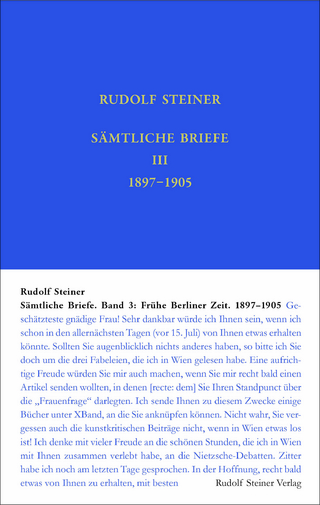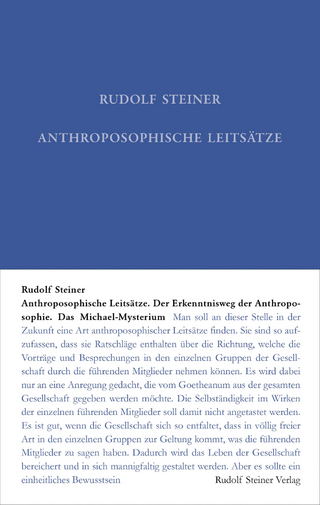Results of Spiritual Research
Rudolf Steiner Press (Verlag)
978-1-85584-599-2 (ISBN)
Lese- und Medienproben
In a previously-unavailable series of talks to the general public, Rudolf Steiner builds systematically, lecture by lecture, on the fundamentals of spiritual science - from the nature of spiritual knowledge and its relationship to conventional science, the path of personal development and the task of metaphysical research, to specific questions on the mystery of death, the meaning of fairy-tales, the significance of morality and the roles of individual figures in human evolution, such as Leonardo da Vinci, Raphael and Jacob Boehme.
At the time of these presentations, Steiner had already worked in Berlin for many years, and thus, '...could reckon with a regularly returning audience to whom what mattered was to enter ever more deeply into the areas of knowledge that were newly opening up to them' (Marie Steiner). As a consequence - and through 'a series of inter-connecting lectures whose themes are entwined with one another' - he was able to communicate a coherent and challenging spiritual perception of reality, based on his personal research.
Presented here with notes, an index and an introduction by Simon Blaxland-de Lange, the 14 lectures include: 'How is Spiritual Science Refuted?'; 'On What Foundation is Spiritual Science Based'; 'The Tasks of Spiritual Research for both Present and Future'; 'Errors of Spiritual Research'; 'Results of Spiritual Research for Vital Questions and the Riddle of Death'; The World-Conception of a Cultural Researcher of the Present, Herman Grimm' and 'The Legacy of the Nineteenth Century'.
Rudolf Steiner (1861-1925) called his spiritual philosophy "anthroposophy", meaning "wisdom of the human being". As a highly developed seer, he based his work on direct knowledge and perception of spiritual dimensions. He initiated a modern and universal "science of spirit", accessible to anyone willing to exercise clear and unprejudiced thinking. From his spiritual investigations Steiner provided suggestions for the renewal of many activities, including education (both general and special), agriculture, medicine, economics, architecture, science, philosophy, religion and the arts. Today there are thousands of schools, clinics, farms and other organizations involved in practical work based on his principles. His many published works feature his research into the spiritual nature of the human being, the evolution of the world and humanity, and methods of personal development. Steiner wrote some 30 books and delivered over 6000 lectures across Europe. In 1924 he founded the General Anthroposophical Society, which today has branches throughout the world.
| Erscheinungsdatum | 14.04.2022 |
|---|---|
| Einführung | S. Blaxland-de Lange |
| Übersetzer | S. Blaxland-de Lange |
| Verlagsort | East Sussex |
| Sprache | englisch |
| Maße | 155 x 235 mm |
| Themenwelt | Weitere Fachgebiete ► Anthroposophie |
| ISBN-10 | 1-85584-599-7 / 1855845997 |
| ISBN-13 | 978-1-85584-599-2 / 9781855845992 |
| Zustand | Neuware |
| Informationen gemäß Produktsicherheitsverordnung (GPSR) | |
| Haben Sie eine Frage zum Produkt? |
aus dem Bereich



